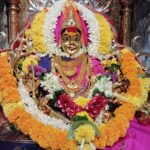Anupama Nair
www.mediaeyenews.com
Today is Buddha Purnima, the birthday of Siddhartha or Gautam Buddha. His teachings help us to lead a better life & it is our duty to remember him and follow his life. He lived in Ancient India from 500 to 400 BC.
He is regarded as the founder of the religion Buddhism, and revered by most Buddhist schools as a savior. He taught for around 45 years and built a large following, both monastic and for the laymen. Buddha was born as Siddhartha or the enlightened one in Lumbini (Nepal) and was born as prince into an aristocratic family in the Shakya clan but eventually renounced royal life. It is said an astrologer told his father that he will become a saint and denounce royalty. So, all unhappiness was kept away from the palace. Once when he ventured out of the palace, he saw the “circle of life”. He saw poverty, oldness and finally death. He decided to renounce the life of a prince and went in search of enlightenment. He left his wife Yashoda, and new-born baby boy Rahul and went to the jungle.
According to Buddhist tradition, after several years of mendicancy, meditation, and living like a rishi, he got enlightenment and began to understand the mechanism which keeps people trapped in the cycle of birth and rebirth. He got name Buddha and then traveled throughout the Gangetic Plain, teaching and building a religious community. The Buddha taught a middle way, between sensual indulgence and the severe asceticism found in India. He taught a training of the mind that included ethical training, self-restraint, and meditative practices such as jnana and mindfulness. He was against animal sacrifice and caste system.
The Buddha based his entire teaching on the fact of human suffering and the ultimately never satisfied and greediness of human life. Existence is painful. The conditions that make an individual are precisely those that also give rise to dissatisfaction and then suffering. Personality of a person implies limitation, limitation gives rise to desire, and desire causes suffering. The Buddha departed from traditional Indian thought in not asserting an essential or ultimate reality in things.
The concept of the individual ego is a popular delusion, the objects with which people identify themselves—fortune, social position, family, body, and even mind are not their true selves. There is nothing permanent, and, if only the permanent deserved to be called the self, or atman then nothing is self. To make clear the concept of no-self (anatman), Buddhists believe in the theory of the five khandhas or constituents of human existence: corporeality or physical forms, feelings or sensations, ideations, mental formations, and consciousness. Human existence is only the composite of the five khandhas, none of which is the self or soul. A person is in a process of continuous change, and there is no fixed underlying entity.
Buddhists accept the teachings of karma and rebirth and the concept of the no-self gives rise to a difficult problem, how can rebirth take place without a permanent subject to be reborn? Indian non-Buddhist philosophers attacked this point in Buddhist thought, and many modern scholars have also considered it to be an insoluble problem. Buddha died around the age of 80, possibly of an illness from eating spoilt food. When he died, it is said that he told his disciples that they should follow no leader, but to "be your own light."
Sites associated with the Buddha’s life and death became important pilgrimage places, such as Sri Lanka, Nepal, India and Burma (Myanmar) added narratives of his magical visitations to accounts of his life. Although the Buddha did not leave any written works, various versions of his teachings were preserved orally by his disciples. In the centuries following his death, hundreds of texts (called sutras) were attributed to him and would subsequently be translated into the popular languages of modern Asia.
Let me share some quotes of Buddha “Our life is shaped by our mind, we become what we think. Suffering follows an evil thought as the wheels of a cart follow the oxen that draw it. Our life is shaped by our mind and we become what we think. Joy follow a pure thought like a shadow that never leaves.” “Three things cannot be long hidden, the sun, the moon, and the truth”. “No one saves us but ourselves. No one can and no one may. We ourselves must walk the path”. The Dalai Lama in Buddha Purnima speech said “whenever I can, I encourage Buddhists, 21st Century Buddhists to discover what the teaching means and to put it into effect. It entails listening and reading, thinking about what you have heard and read and making yourself deeply familiar with it”

































Very well ecplsined. Good information